Philosophy club hosts Existence of the Divine panel
November 24, 2021
“The question of God’s existence has both longstanding argumentation and prevalence throughout history,” Philosophy and Religious Studies Club President Samuel Stanmour said opening the Existence of the Divine panel last Wednesday. “Questions of God’s existence and questions concerning the nature of God linger behind our society’s most pressing questions: What is justice? How are we to live? What are the rights a person is owed? Is life sacred? How do we care for the planet?”
The colloquium featured philosophy professor Cynthia Coe and religious studies lecturer Michael Hundley discussing “the interlocking influence questions of divinity had on philosophy, theology, history and contemporary politics.” While covering aspects off all religions, the discussion primarily focused on the Abrahamic faiths Judaism, Christianity and Islam.
The guests took turns responding to questions from Stanmour, including questions like, “Why is there something rather than nothing?”, “What is at stake in the debate surrounding God’s existence?” and “Can there be objective moral values without the existence of God?”
One idea that repeatedly came up during the discussion was that humans search for narratives to make sense of the world. Hundley mentioned that this could be why religious people tend to be healthier than nonreligious people.
“People who believe in the existence of a good personal God tend to live longer, they tend to get sick less and they tend to heal faster,” Hundley said. “Social scientists have been trying to figure out the answer [to] why is this, and ultimately I think it’s one that we [don’t] necessarily have a definite answer [to], but one of the ones that people have come up with is this idea that believing in a good God is good for your mental health. It is nice to believe that you are not alone in the world.”
Coe stated in response that while these narratives can be helpful, they can also be dangerous if a person is not critical about their beliefs.
“Sometimes the narratives we tell that can offer comfort and a sense of certainty, may lead us in directions of illusion, injustice or violence,” Coe said. “One of the things that radicalizes people is this sense that the world is so corrupt that it needs to be destroyed in order to be cleansed, and so narratives about how the world should be can be comforting, but they can also be enormously destructive if we’re unwilling to ask serious questions about where did we get that narrative of the world.”
The final question asked was “Do we need religious beliefs in order to have hope for society moving forward?” This led Hundley to reflect on a movie he was watching with his son about Pandora’s Box.
“This jar releases all the evils of the world, and they’re out of our control, they’re harassing us, but the one thing we have left is hope,” Hundley said. “Hope remains and hope allows humans to cope with the bad things and the terrible things in the world, and religion definitely has no stranglehold on hope. There’s no monopoly on hope; hope is part of the human condition.”



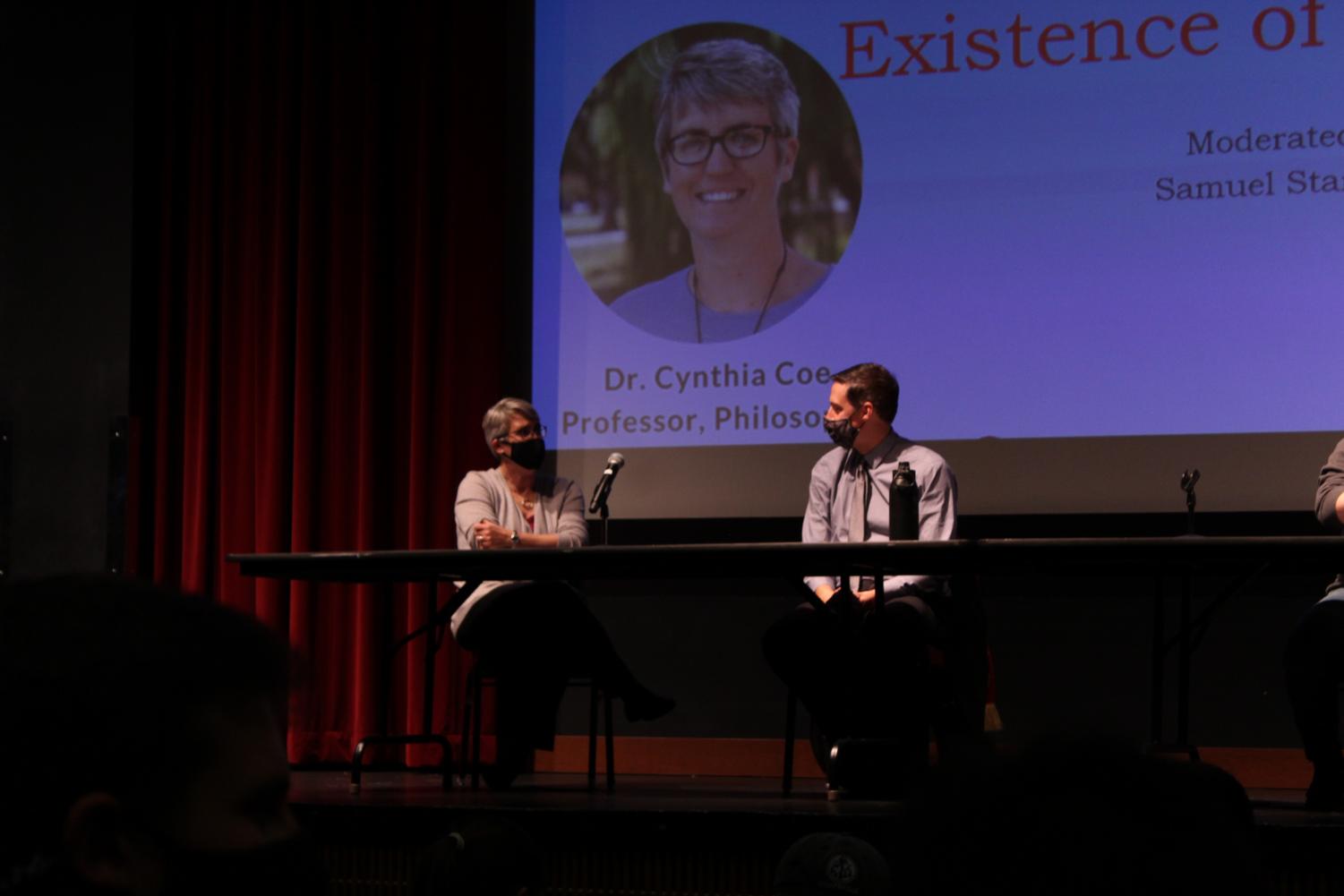
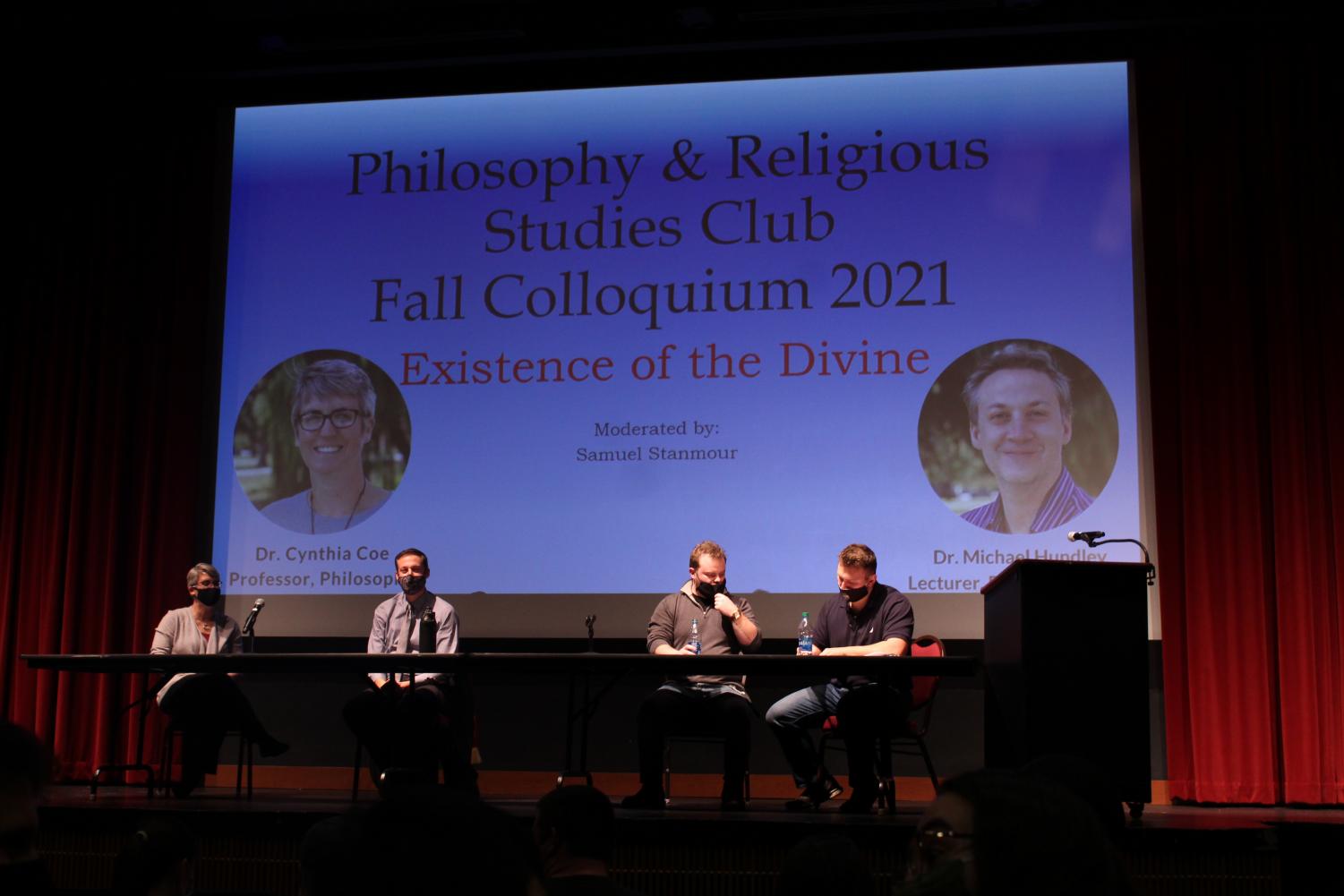
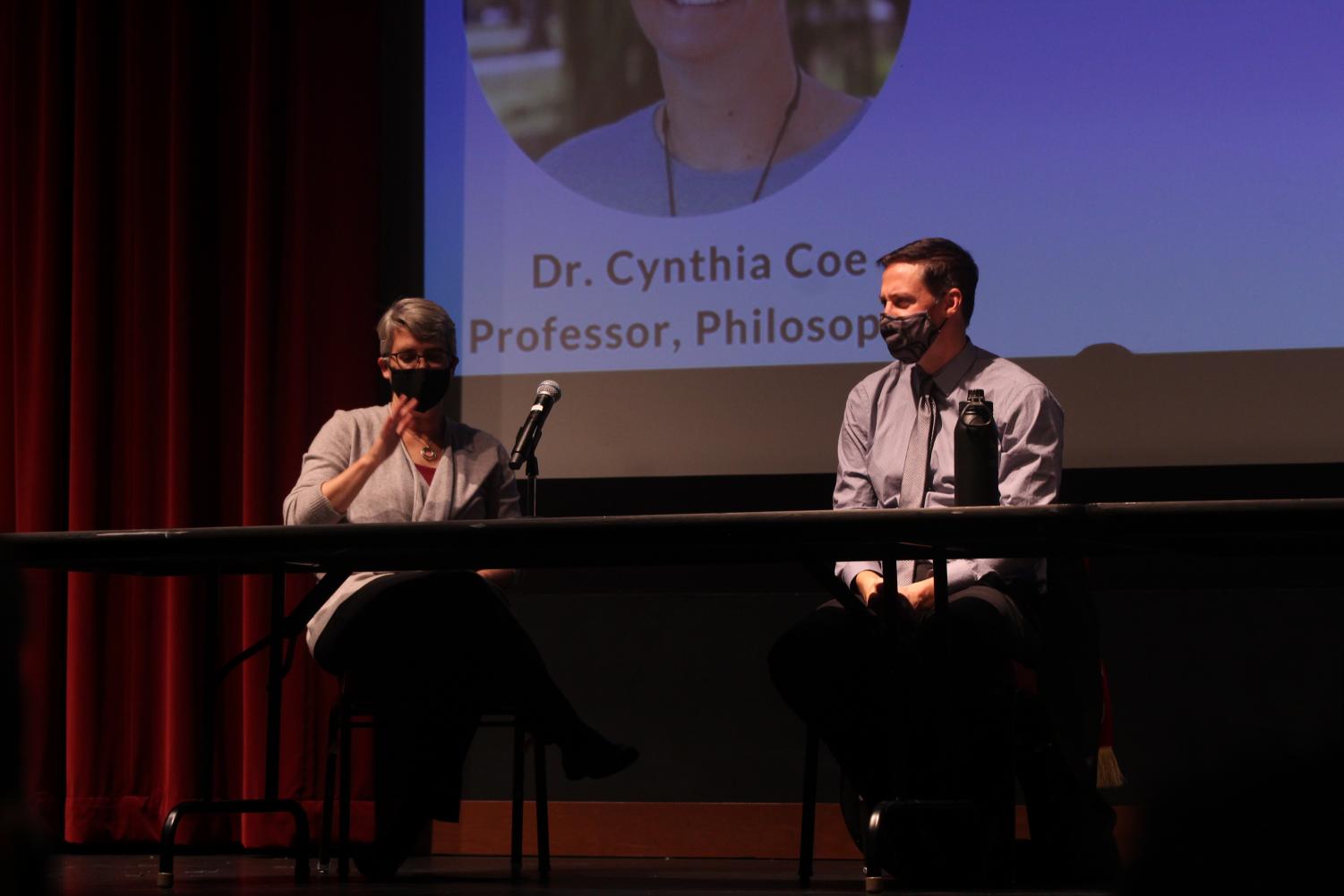
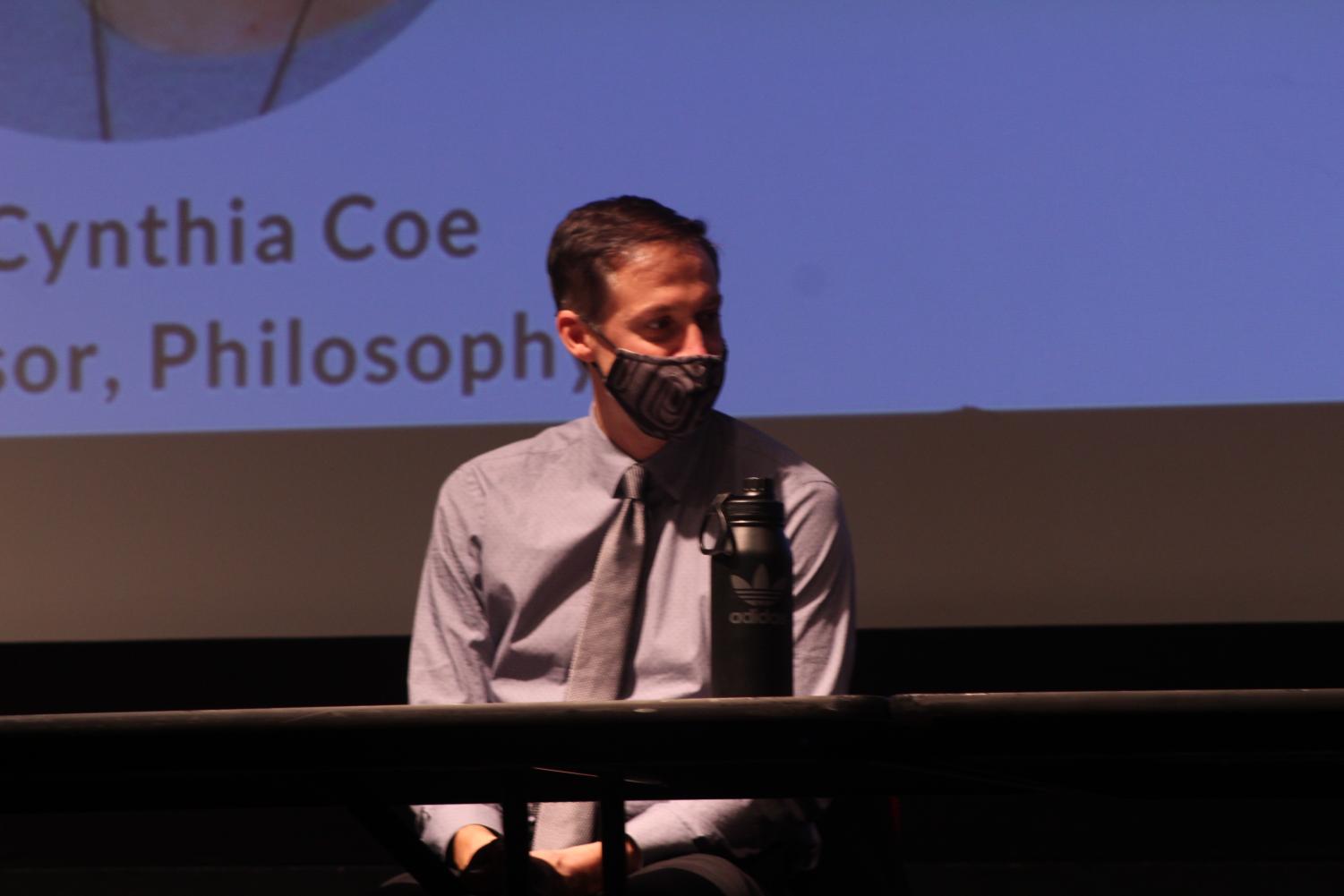
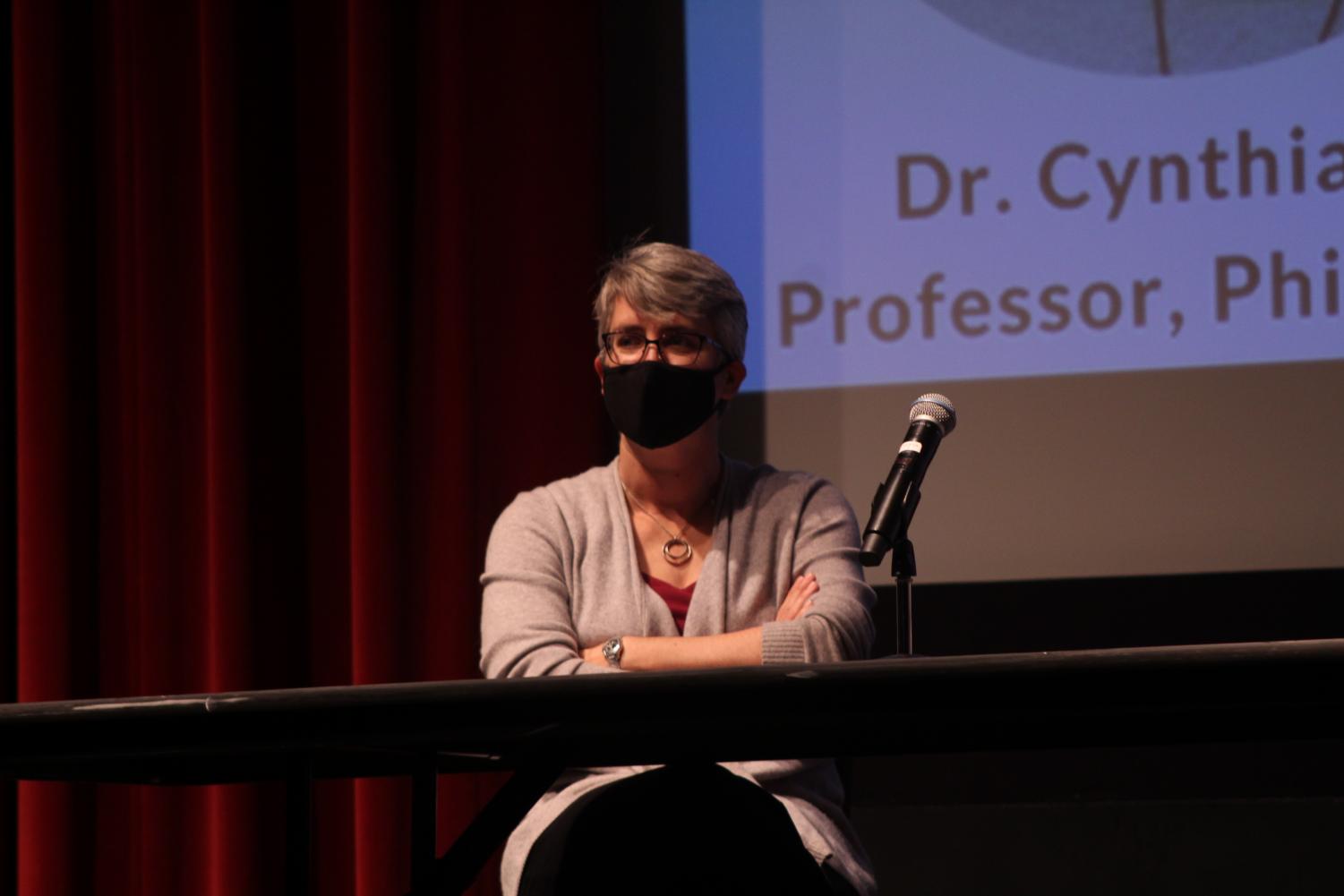
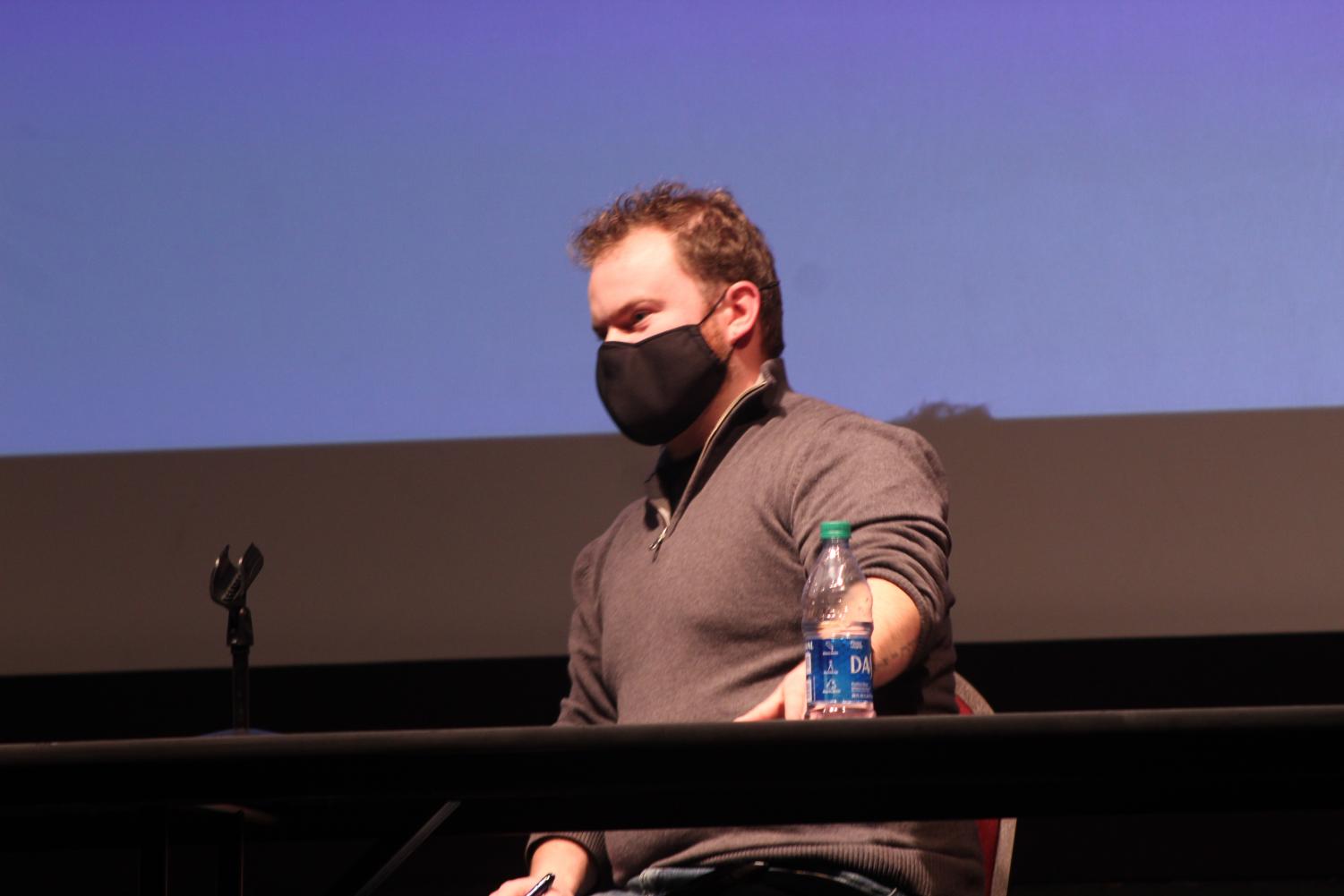
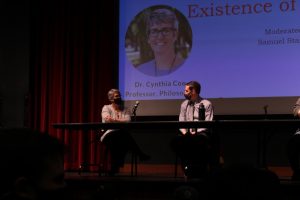
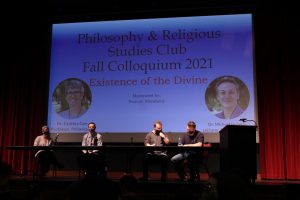
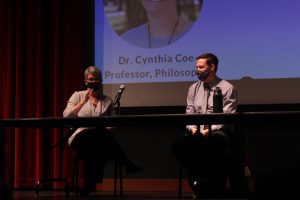
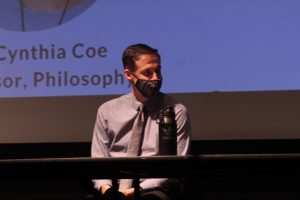
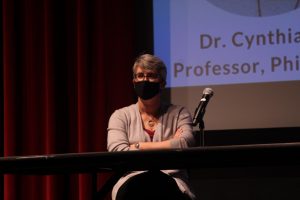

Robert Landbeck • Nov 25, 2021 at 7:08 am
“What is at stake in the debate surrounding God’s existence?” It could be two thousand years of Christology!
For contrary to all expectations, the first wholly new interpretation for two thousand years of the Gospel and moral teaching of Christ has been published and available on the web. Radically different from anything else we known from history or tradition. Redefining all primary elements including the very nature of Faith, the Word, Law, Baptism, the Trinity, the Holy Spirit and especially the Resurrection, this new moral teaching is predicated upon the ‘promise’ of a precise, predefined, predictable and repeatable experience of transcendent omnipotence and called ‘the first Resurrection’ in the sense that the Resurrection of Jesus was intended to demonstrate Gods’ willingness to reveal Himself and intervene directly into the natural world for those obedient to the single ‘Command’ that existed at the beginning, paving the way to confirm and justify, by faith, the power of divine Will and ultimate proof!
So like it or no, and most won’t, a new spiritual teaching offering a testable, predictable, moral wisdom not of human intellectual origin, transcending human subjectivity, wholly testable by faith, meeting all Enlightenment criteria of direct, evidence based causation and definitive proof now exists, and carries all the implications that suggests. Nothing short of an intellectual, moral and spiritual revolution is getting underway.
http://www.energon.org.uk